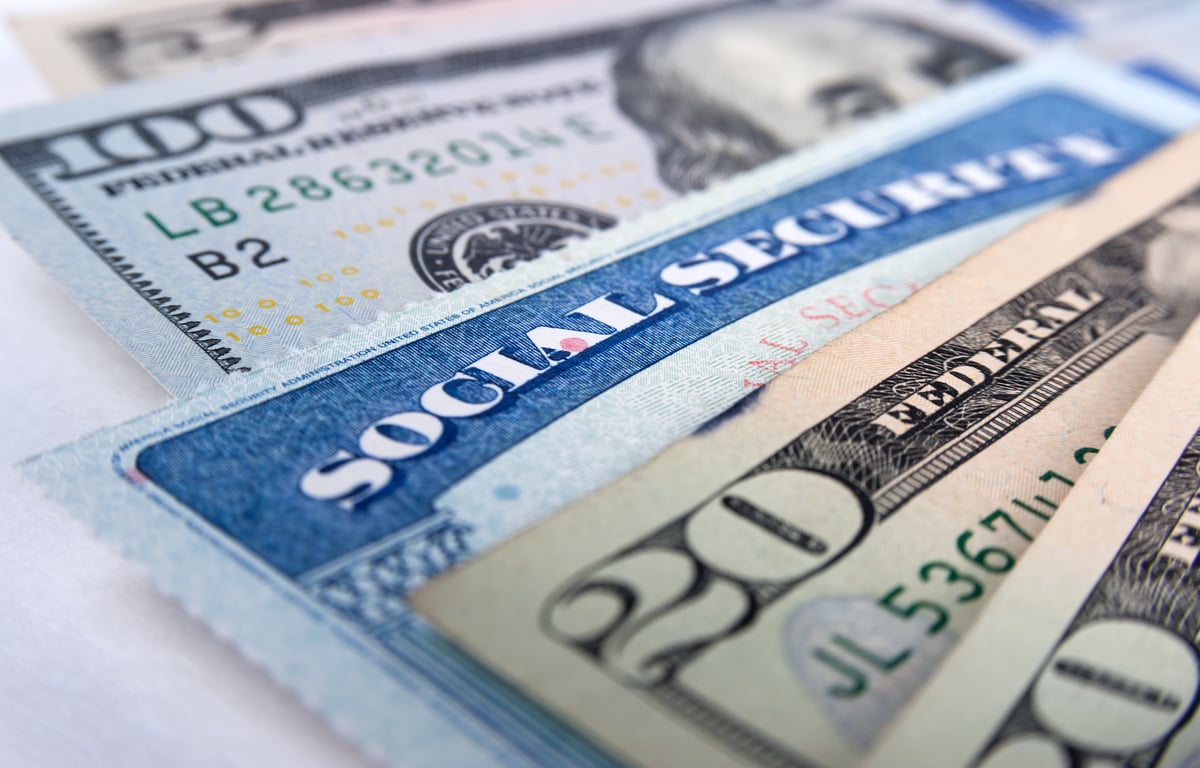It's an unfortunate fact that most Americans aren't saving as much for retirement as they should. According to an AARP analysis of Census Bureau data, the average income for retired Americans 65 and over was just under $31,742 in 2012, which equates to just $2,645 a month. Given the mounting costs seniors face, from housing to healthcare, it's important to look for opportunities to increase your retirement income. Here are a few ways to get your hands on extra cash.

Image source: Getty Images.
1. Hold off on Social Security -- and work a bit longer
Though you're technically allowed to start collecting Social Security as early as 62, taking benefits before you reach your full retirement age (which, if you were born in 1943 or later, is 66, 67, or somewhere in between) will reduce your monthly payments by 6.67% for up to 36 months, and then 5% beyond that point. If your full retirement age is 67 and you start collecting Social Security at 62, you'll lose 30% of your benefits.
On the other hand, if you delay Social Security past your full retirement age, you'll get an 8% increase in benefits for every year you hold off. If your full retirement age is 67 and you wait until 70 to collect benefits (at which point the incentive to delay runs out), you'll increase your Social Security payments by 32%.
Let's see what this looks like when we apply some numbers. If your full monthly benefit is $2,000 and you collect it five years early, you'll reduce it to just $1,400 -- forever. On the other hand, if you delay for four years, you'll increase it to $2,640 for the rest of your life.
To take things one step further, if you hold off on Social Security and work an extra few years, you'll not only increase your benefits, but get an opportunity to pad your retirement savings with the added income you're generating. Currently, anyone 50 or older can contribute up to $24,000 a year to a 401(k) and $6,500 to an IRA. If you're able to work an extra four years and max out your 401(k), you'll have an additional $96,000 at your disposal, which translates into $400 more a month in income over the course of a 20-year retirement.
2. Buy dividend stocks
You may have heard that it's not a good idea to hold stocks in your portfolio as you reach retirement because they're too volatile, but that's actually not true. Though you shouldn't have the majority of your money invested in stocks during retirement, leaving part of your portfolio in stocks can actually be a smart move, especially if you choose some solid dividend stocks. Though dividends are never guaranteed, if you pick established companies with a strong history of paying out dividends, you're likely to collect regular payments for as long as you hold their stock.
3. Work during retirement
In a retirement survey by Merrill Lynch, almost half of today's retirees say they've either worked or are planning to work during retirement. Not only is working in retirement a great way to bring in extra money, but some studies show that it can improve your health as well. But don't just resign yourself to a part-time office job, or something similarly unfulfilling; take the opportunity to do something you love. Start your own business, do some consulting work in your former field, or turn a hobby like baking or crocheting into an income stream. It'll give you something to do with your newfound free time and put a little extra cash in your pocket.
4. Become a landlord
If you've outgrown your house but aren't quite ready to downsize, renting out space in your home is a great way to generate some extra retirement income. This is especially feasible if your home has a finished basement or living area that's separate from the rest of your space. If you manage to collect $800 a month in rent, that's an additional $9,600 a year coming your way for letting someone occupy an otherwise empty room.
Retirement can be a financially stressful time for some seniors, but you can improve your own financial picture by taking steps to bring in extra money. Whether it's an additional $50 every week from a part-time job or a $100 dividend check once a quarter, just remember that every little bit counts.





